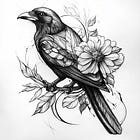This podcast discusses the key concepts and strategies presented in Oz Akan's article, "Seek Truth, not the Comfort of Being Right," which focuses on the pervasive influence of confirmation bias and offers practical methods for mitigating its effects in personal and professional decision-making. The core message emphasizes the importance of adopting a scientific mindset – seeking to disprove rather than confirm beliefs – to foster more rational and effective thinking.
Original article is here:
Main Themes and Key Ideas:
Definition of Confirmation Bias:
Confirmation bias is the tendency to favor information that aligns with our existing beliefs while dismissing or overlooking contradictory evidence.
It's described as "the tendency to seek out and favor information that aligns with our existing beliefs while conveniently dismissing anything that contradicts them."
It affects how we search for information, how we interpret findings, and what we choose to remember.
Psychological Roots of Confirmation Bias:
Confirmation bias stems from deep psychological needs:
Efficient information processing: Our brains seek cognitive shortcuts to avoid mental overload.
Protecting self-esteem: We tend to gravitate towards information that validates our existing beliefs and enhances how we view ourselves.
Maintaining a consistent worldview: We prefer mental stability and struggle when confronted with information that challenges our established beliefs.
Avoiding cognitive dissonance: We try to avoid the discomfort of holding contradictory beliefs or dealing with information that clashes with our current mindset.
The Trap of Biased Questioning:
Confirmation bias leads us to ask questions that confirm our beliefs instead of challenging them.
Example: Instead of asking “What could go wrong?” we tend to ask questions like “What are the benefits of this idea?”
This kind of questioning keeps us in a “comfort zone” and avoids difficult but necessary truths.
Asking more critical questions is like "the intellectual equivalent of eating your vegetables—less fun, but better for you in the long run."
The Value of Scientific Thinking:
The article argues for adopting a scientific mindset, which prioritizes disproving hypotheses rather than confirming them.
It involves a shift from asking "How am I right?" to asking "How might I be wrong?"
Proving an idea wrong is easier and requires less effort than proving it right.
This approach to thinking allows us to learn more and uncover potential flaws rather than simply validating our current thinking.
Strategies for Overcoming Confirmation Bias:
Playing Devil's Advocate: Actively challenge assumptions by arguing the opposite side of the issue.
Asking Better Questions: Replace leading questions (e.g., "Why am I right?") with neutral questions that explore alternative viewpoints (e.g., "What evidence would prove me wrong?").
Start with "open-ended, neutral questions (questions framed without bias, designed to gather information objectively rather than support a pre-existing belief)."
Engaging Diverse Perspectives: Seek out and value input from people who hold different views and welcome constructive disagreements. A lack of opposing opinions could be a sign of groupthink and missed perspectives.
Using Structured Methods: Employ decision-making frameworks such as the Six Thinking Hats method, the Decision Matrix, or the OODA Loop. Documenting reasoning and revisiting decisions after the fact also helps.
The Goal: Rational Decision-Making:
Acknowledging and mitigating confirmation bias is essential to ensuring that your beliefs are well-founded, based on evidence, and able to withstand scrutiny.
It is about making better decisions, avoiding errors, and gaining wisdom.
The author encourages readers to "pause and ask: 'Am I trying to confirm, or am I trying to learn?'"
The ultimate aim is to "seek truth, not the comfort of being right."
Key Quotes:
"Confirmation bias is the tendency to seek out and favor information that aligns with our existing beliefs while conveniently dismissing anything that contradicts them."
"The first question keeps me in my comfort zone; the second one forces me to wrestle with uncomfortable truths."
"Scientists don’t aim to confirm their hypotheses; they aim to disprove them."
"Instead of asking, “How am I right?” they ask, “How might I be wrong?”"
"Seek truth, not the comfort of being right."
Conclusion:
Oz Akan’s article provides a clear and practical guide to understanding and combating confirmation bias. By recognizing its influence and employing the proposed strategies, individuals can make more rational, evidence-based decisions and pursue a more open-minded and truth-seeking approach to problem-solving. The core message encourages a shift in thinking towards actively seeking out contradictory information and embracing discomfort as a necessary aspect of intellectual and personal growth.













